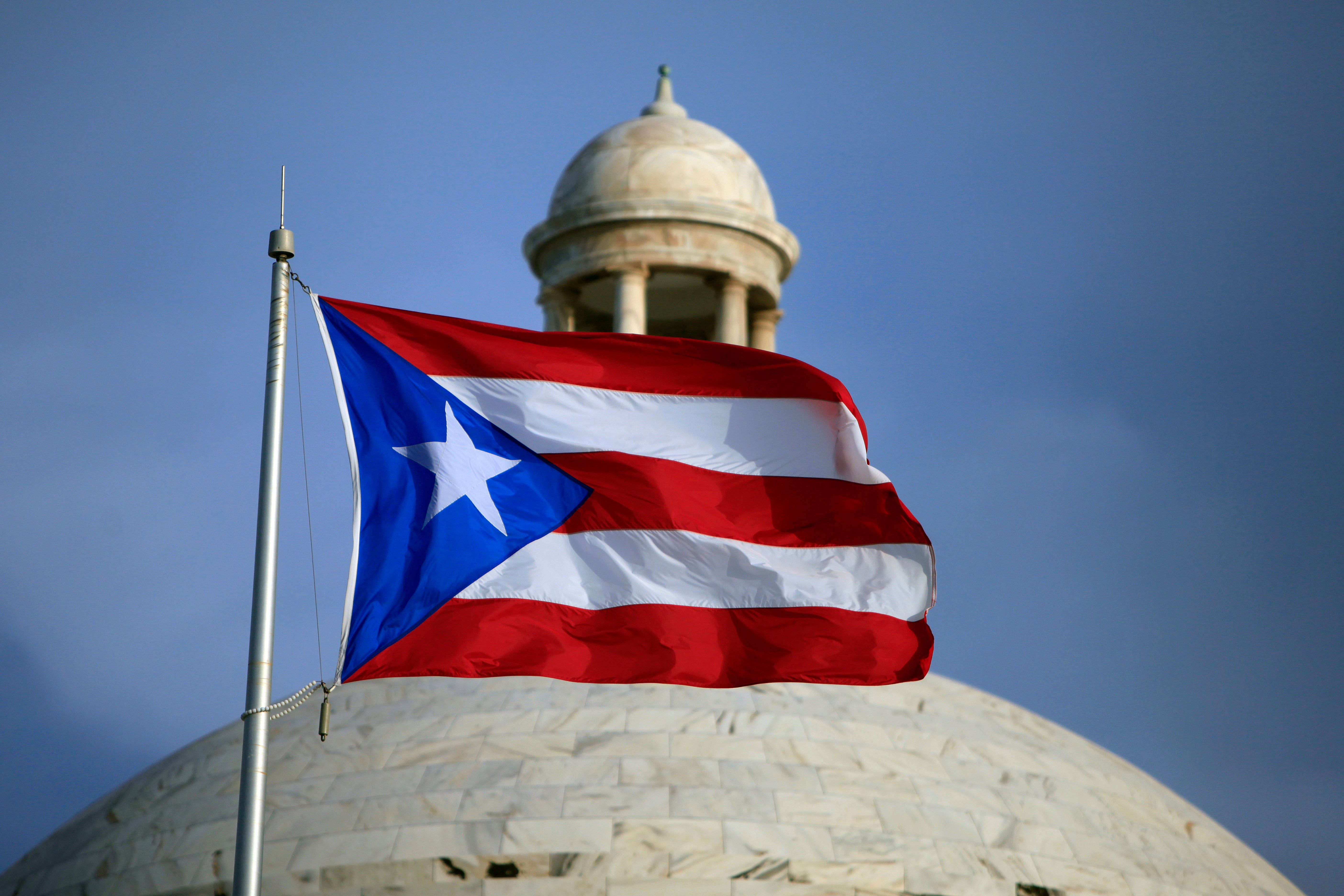Puerto Ricans speak out on US territory's political status
Hundreds of Puerto Ricans have crowded into a convention center where federal legislators are holding a public hearing to decide the future of the island’s political status as the U.S. territory struggles to recover from hurricanes, earthquakes and a deep economic crisis

Your support helps us to tell the story
From reproductive rights to climate change to Big Tech, The Independent is on the ground when the story is developing. Whether it's investigating the financials of Elon Musk's pro-Trump PAC or producing our latest documentary, 'The A Word', which shines a light on the American women fighting for reproductive rights, we know how important it is to parse out the facts from the messaging.
At such a critical moment in US history, we need reporters on the ground. Your donation allows us to keep sending journalists to speak to both sides of the story.
The Independent is trusted by Americans across the entire political spectrum. And unlike many other quality news outlets, we choose not to lock Americans out of our reporting and analysis with paywalls. We believe quality journalism should be available to everyone, paid for by those who can afford it.
Your support makes all the difference.Hundreds of Puerto Ricans crowded into a convention center Saturday where federal legislators held a public hearing to decide the future of the island’s political status as the U.S. territory struggles to recover from hurricanes, earthquakes and a deep economic crisis.
One by one, dozens of people ranging from politicians to retirees to young people leaned into a microphone and spoke against the island’s current territorial status, which recognizes its people as U.S. citizens but does not allow them to vote in presidential elections, denies them certain federal benefits and allows them one representative in Congress with limited voting powers.
The hearing comes two weeks after a group of Democratic congress members including the House majority leader and one Republican proposed what would be the first-ever binding plebiscite that would offer voters in Puerto Rico three options: statehood, independence or independence with free association, whose terms would be defined following negotiations.
Congress would have to accept Puerto Rico as the 51st state if voters so choose it, but the proposal is not expected to survive in the Senate, where Republicans have long opposed statehood.
“Everyone, even congress people themselves, know that the possibilities of this becoming law are minimal and maybe non-existent, but it doesn’t stop being important,” former Puerto Rico governor Aníbal Acevedo Vilá told The Associated Press.
About an hour into the hearing, a small group of people including a former gubernatorial candidate who supports independence burst into the ballroom, pointed fingers at the panel of U.S. legislators and yelled, “120 years of colonialism!”
The majority of the audience booed the group and yelled at them to leave as U.S. lawmakers called for calm.
“Democracy is not always pretty, but it’s necessary,” said Rep. Raúl Grijalva of Arizona, chairman of the U.S. House of Natural Resources Committee, which oversees affairs in U.S. territories.
The proposal of a binding plebiscite — a measure that has not yet been introduced in committee — has frustrated some on an island that already has held seven unilateral, nonbinding referendums on its political status, with no overwhelming majority emerging. The last referendum was held in November 2020, with 53% of votes for statehood and 47% against, with only a little more than half of registered voters participating.
Luis Herrero, a political consultant, said during the hearing that even if enough people support statehood, there are not enough votes in the Senate to make Puerto Rico a state: “Not today, not yesterday, not tomorrow. Since 1898, Puerto Rican statehood has been a mirage, lip service to score cheap political points or to raise a few dollars for a campaign.”
Saturday's hearing comes amid ongoing discontent with Puerto Rico’s current political status, with the U.S. Supreme Court further angering many in April after upholding the differential treatment of residents of Puerto Rico. In an 8-1 vote, the court ruled that making Puerto Ricans ineligible for the Supplemental Security Income program, which offers benefits to blind, disabled and older Americans, did not unconstitutionally discriminate against them.
As a result, many of those who spoke at Saturday’s public hearing welcomed the proposed binding plebiscite.
“We finally see the light at the end of the tunnel,” said Víctor Pérez, a U.S. military veteran who lamented the current political status. “Even after all our service and sacrifice, we come back home and we are denied full voting rights and equality. ... We cannot vote for our president, our commander in chief, (but) they send us to war.”
Grijalva said the testimonies given Saturday will help him and other legislators revise the proposed measure, which he said is a way to make amends. He said he hopes it will go to the House floor by August. If eventually approved, it would be held on Nov. 5, 2023.
Acevedo, the former governor, said he hasn’t lost hope despite numerous attempts throughout the decades to change the political status of Puerto Rico, which became a U.S. territory in 1898 following the Spanish-American War.
“A solution to this problem of more than 120 years has to happen at some point,” he said. “When will conditions allow for it? That’s unpredictable.”